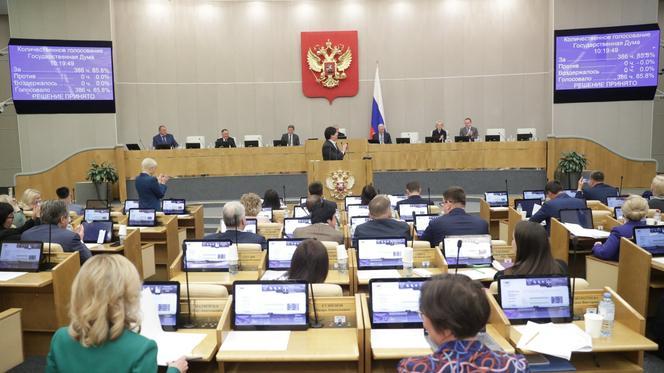Russian lawmakers have escalated tensions with the popular messaging app WhatsApp, declaring it a “security threat” and urging the platform to prepare for a potential exit from the country. This development underscores Moscow’s growing scrutiny of foreign technology companies amid ongoing concerns over data security and regulatory compliance. The move marks the latest chapter in Russia’s efforts to tighten control over digital communication channels, raising questions about the future accessibility of widely used apps within the nation.
Russian Lawmakers Label WhatsApp a Security Threat Amid Rising Cyber Concerns
In a move reflecting escalating cyber tensions, several Russian lawmakers have publicly denounced WhatsApp, branding the messaging platform as a potential national security hazard. The officials argue that the app’s encryption features and foreign ownership present serious challenges to governmental surveillance and data protection efforts in Russia. Calls have intensified for WhatsApp to either comply with stricter regulatory demands or face expulsion from the Russian market altogether.
The concerns center on WhatsApp’s perceived resistance to data-sharing requirements and content monitoring mandates imposed by Russian authorities. Lawmakers emphasized several points:
- Encryption obstacles: End-to-end encryption limits governmental access to communications purportedly used for illicit activities.
- Data sovereignty: Handling of user data by foreign entities complicates jurisdiction and control.
- Cybersecurity risks: The platform is viewed as a conduit for misinformation and foreign interference.
| Aspect | Russian Concern | WhatsApp’s Stance |
|---|---|---|
| Encryption | Limits government surveillance | Maintains end-to-end privacy protection |
| Data Handling | Foreign control over Russian user data | Data stored in global servers |
| Content Monitoring | Difficulty in removing harmful content quickly | Relies on user reporting and moderation |
Implications for Messaging Platforms Operating in Russia’s Tightening Regulatory Environment
With the escalating regulatory pressure in Russia, messaging platforms like WhatsApp face increasing hurdles that could reshape their operational landscape. Authorities have intensified demands concerning data localization, content monitoring, and compliance with government requests. Failure to comply positions these platforms as security liabilities, prompting lawmakers to advocate for their potential exit. This trend signals a shift towards a highly controlled digital ecosystem where foreign applications must either conform to stringent regulations or risk exclusion from one of the world’s largest online markets.
For messaging services navigating this terrain, the consequences extend beyond legal compliance. These platforms confront challenges such as:
- Mandatory data storage on Russian soil, increasing operational costs
- Obligatory real-time content monitoring and censorship, impacting user trust
- Risk of being labeled as national security threats, which can lead to network throttling or bans
The combined effect may drive foreign platforms to reconsider their presence or prompt a pivot to alternative technologies better aligned with Russia’s regulatory expectations.
| Regulatory Demand | Impact on Messaging Platforms |
|---|---|
| Data Localization | Requires costly local infrastructure |
| Content Monitoring | Restricts user privacy and freedom of expression |
| Government Data Access | Raises concerns over data security and trust |
Experts Advise WhatsApp to Enhance Compliance Measures or Face Potential Expulsion
In response to mounting concerns over national security, Russian lawmakers have urged WhatsApp to significantly ramp up its compliance efforts with local regulations or face the possibility of being banned within the country. Authorities emphasize that the messaging platform’s current policies fall short in adequately safeguarding user data and monitoring content that may pose a risk to state security. Legal experts warn that failure to align with stringent data localization and censorship rules could result in WhatsApp’s expulsion from the Russian digital landscape, disrupting millions of daily users.
Experts stress key areas where WhatsApp must focus improvements to avoid sanctions, highlighting the platform’s opaque encryption mechanisms and resistance toward sharing metadata with regulatory bodies. Among the critical compliance demands are:
- Implementation of local data storage solutions to ensure Russian users’ information is housed domestically.
- Enhancement of content moderation policies aligned with Russian legislation.
- Regular transparency reporting on data requests and government interactions.
| Compliance Aspect | Current Status | Required Action |
|---|---|---|
| Data Localization | Not fully implemented | Store all Russian user data on local servers |
| Content Monitoring | End-to-end encryption limits oversight | Develop mechanisms compatible with privacy laws |
| Transparency Reporting | Infrequent disclosures | Publish detailed, regular compliance reports |
Wrapping Up
As tensions between Russian authorities and global technology companies continue to mount, the recent statements from lawmakers signaling WhatsApp’s potential exit highlight the growing challenges for foreign messaging platforms operating in Russia. With the government intensifying its demands under the guise of national security, the future of popular communication services like WhatsApp remains uncertain, raising questions about the digital landscape and user access within the country. Observers will be closely monitoring how this situation evolves and the broader implications for internet freedom in Russia.















